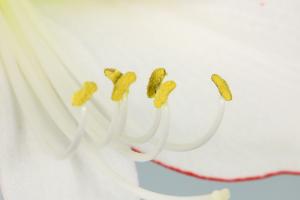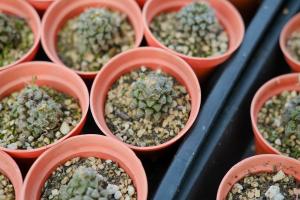Which Organelle Stores Water in a Plant Cell
Plant cells differ significantly from animal cells due to the presence of various organelles that perform specific functions. One of the primary organelles in plant cells is the vacuole, which is responsible for storing water, nutrients, and waste products. In this article, we will explore the structure and functions of the vacuole, and its role in maintaining the overall health of a plant cell.
The Structure of the Vacuole
The vacuole is a large, membrane-bound organelle that occupies most of the space in a mature plant cell. It is surrounded by a single membrane called the tonoplast, which separates the contents of the vacuole from the rest of the cell. The tonoplast is made up of lipids and proteins, and it functions to regulate the movement of substances into and out of the vacuolar space.
The internal structure of the vacuole is complex and dynamic, with various sub-compartments that are specialized for different functions. For example, some vacuoles contain pigments that give flowers their color, while others are filled with enzymes that facilitate chemical reactions within the cell.
The Functions of the Vacuole
The primary function of the vacuole is to store water, which is essential for maintaining turgor pressure in plant cells. Turgor pressure refers to the force that the cell wall exerts on the cell contents, and it is critical for maintaining the shape and structural integrity of the plant. When the vacuole is full of water, it exerts pressure against the cell wall, which keeps the cell turgid and prevents it from collapsing.
Apart from water storage, the vacuole also serves as a storage site for various nutrients and waste products. For example, some vacuoles contain starch granules that store excess glucose, while others sequester harmful compounds like alkaloids and phenols, which can cause damage to the plant if left unchecked.
Another important function of the vacuole is to regulate the pH levels within the cell. This is achieved through the activity of specialized transporters that pump protons into and out of the vacuole, thereby maintaining a balance between acidic and basic conditions in the cell.
The Role of the Vacuole in Plant Growth and Development
The vacuole plays a critical role in the growth and development of plant cells and tissues. For example, as a plant cell grows, the vacuole expands and occupies a larger proportion of the cell volume. This expansion is facilitated by the uptake of water and nutrients into the vacuole, which allows the cell to grow and divide.
The vacuole also plays a role in controlling the development of different plant tissues. For example, in the roots, the vacuole is responsible for creating an osmotic gradient that helps to absorb water and minerals from the soil. In the leaves, the vacuole is involved in regulating the size and shape of the chloroplasts, which are specialized organelles that carry out photosynthesis.
Conclusion
In summary, the vacuole is a vital organelle in plant cells that is responsible for storing water, nutrients, and waste products. Its role in regulating pH levels, maintaining turgor pressure, and controlling the development of different plant tissues underscores its importance in the overall growth and health of the plant. Therefore, understanding the structure and functions of the vacuole is essential for comprehending the complex biology of plants, and for developing strategies to improve crop yields and enhance food security worldwide.

 how many times do yo...
how many times do yo... how many planted tre...
how many planted tre... how many pine trees ...
how many pine trees ... how many pecan trees...
how many pecan trees... how many plants comp...
how many plants comp... how many plants can ...
how many plants can ... how many plants and ...
how many plants and ... how many pepper plan...
how many pepper plan...































